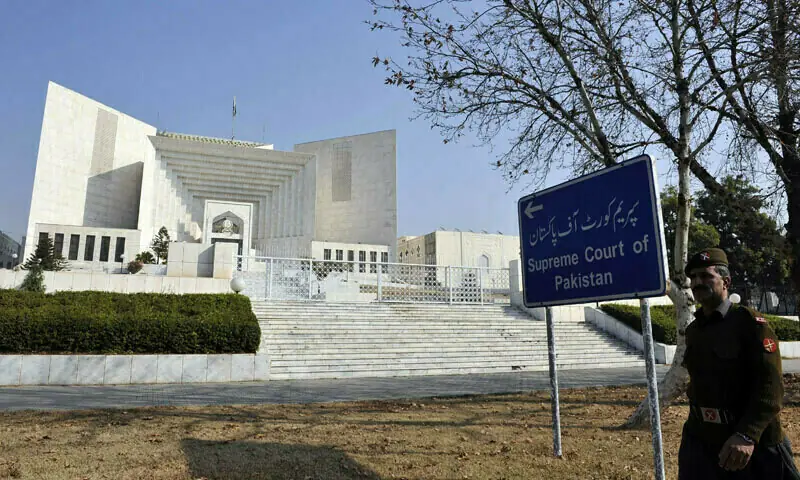The Supreme Court on Thursday acquitted a man who was jailed for 12 years over allegations of raping his daughter, citing contradictions in the prosecution’s evidence.
In a court order dated Aug 26, seen by Dawn.com, Justice Ali Baqar Najafi said that the prosecution’s evidence was discarded, noting it was “deficient of trustworthiness”.
“The sentence and conviction of the appellant is set aside. He be released forthwith if not required in any other case,” the order read.
In 2010, the suspect’s minor daughter informed her mother and maternal uncle that “her own father had committed rape with her”, according to the order.
It stated that on October 2, 2010, the victim, aged six or seven, went to her mother in tears and disclosed that her father, the appellant, had committed a “wrong act” with her, after which she felt severe pain.
Subsequently, the father was arrested and sentenced to life imprisonment under Section 376(1) of the Pakistan Penal Code and a fine of Rs35,000. The sentence was upheld by the Lahore High Court in 2013.
The suspect had approached the SC against the LHC’s decision. The case was heard by a three-member bench today.
The order noted that the mother’s case was that the daughter was “subjected to rape by the appellant at 2:00pm”, but the victim’s statement “creates doubt about her credibility and, therefore, requires strong corroboration”.
It further read, “According to the complainant (mother), the victim was brought to the hospital where she was examined in her presence.
“However, the doctor’s opinion is self-contradictory as in her examination in chief she stated that the victim was subjected to rape but in the cross-examination she categorically stated that on the basis of chemical examiner’s report, no rape was found to have been committed with her.”
Justice Najafi stated, “This leaves the court to a serious question on the credibility of the statement of the victim and the possibility of false implication of the appellant. Why such serious allegations were levelled against the appellant, may be due to the fact came on record that there was a dispute between the complainant and the appellant …”
The judge also mentioned that the trial court did not put the Rationality Test to the victim before recording her statement, stating, “… a child is a competent witness if he/she passes a standard of sufficient maturity of understanding about the facts which were to be narrated by her”.
“A note/observation by the court, based on the relevant questions and their answers would make such statement credible,” the order read, noting that the victim’s statement “needs strong corroboration”.
Despite the presence of anti-rape laws — with punishment for rape either resulting in the death penalty or imprisonment of between 10 and 25 years — cases continue to prevail in the country.
Last year, data gathered by Sahil, an NGO working on cases of child sexual abuse, revealed that the overwhelming majority of abusers are acquaintances or neighbours in communities or family members.
In March, four suspects who raped and killed an 11-year-old girl in Bahawalpur were traced as the victim’s relatives, with two of them being maternal uncles.
